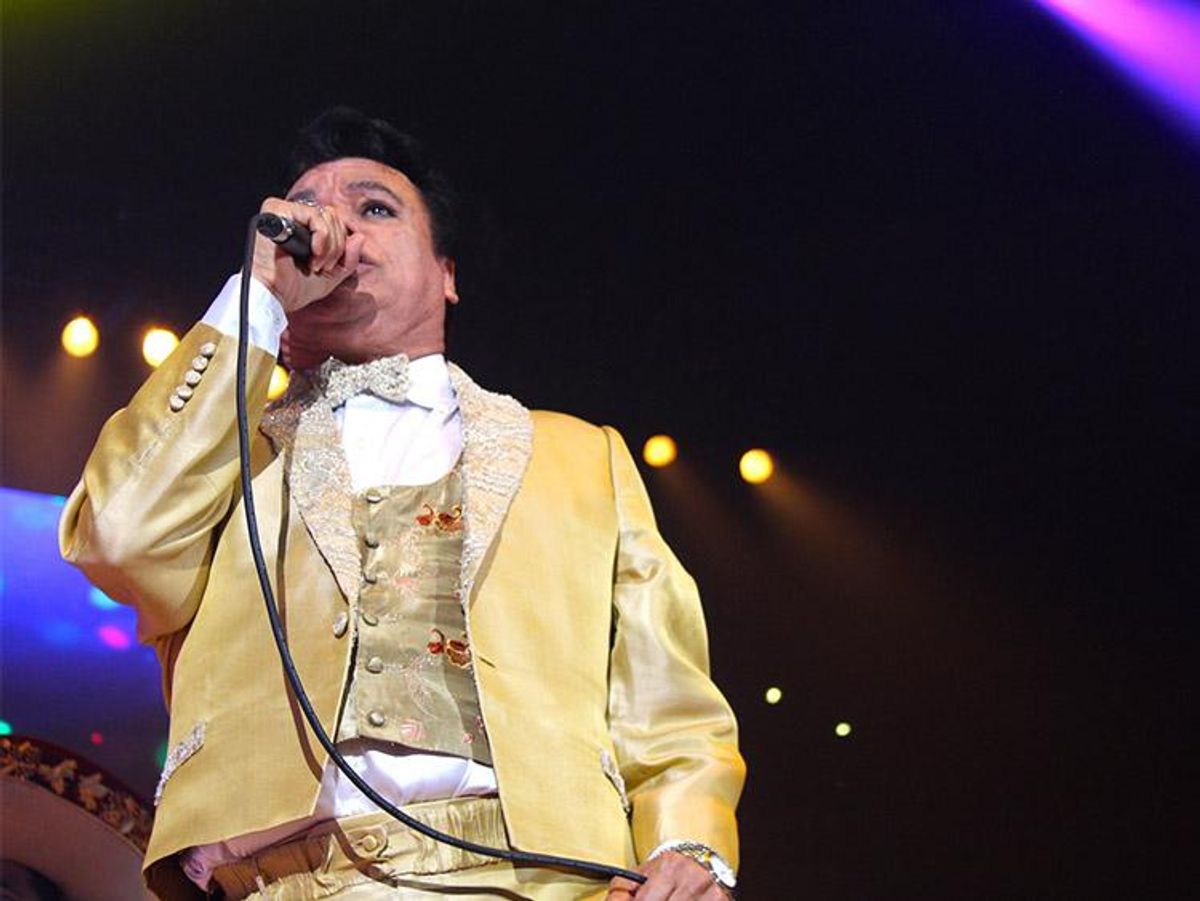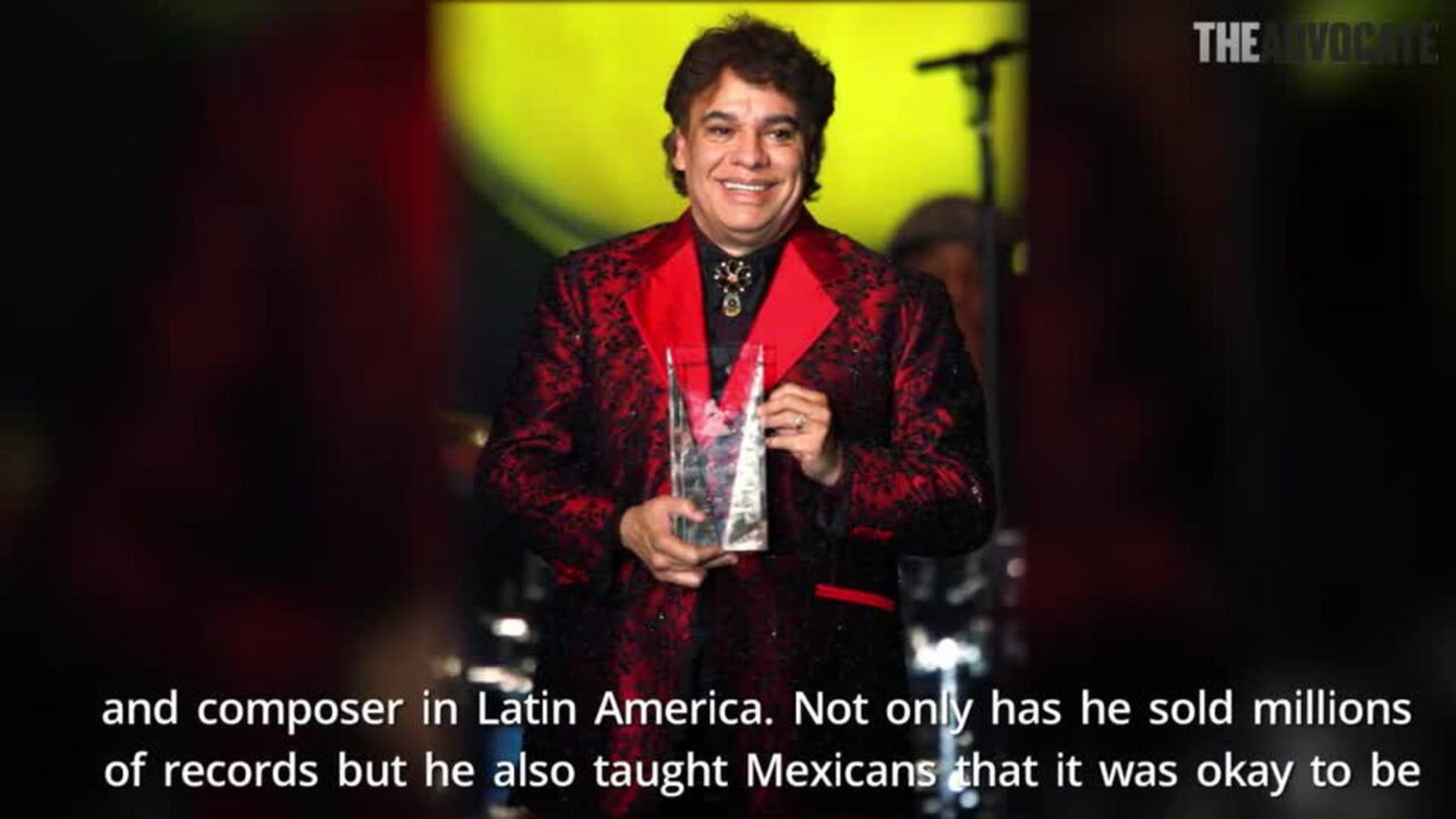Juan Gabriel never "came out" as gay, at least not in the traditional way.
But that doesn't make him any less of an icon for queer Latino fans who grew up adoring the ballad singer.
El Divo de Juarez has been memorialized by the likes of President Obama, who called him "one of the greats of Latin music." Jorge Ramos, the Univision/Fusion anchor and journalist, took a moment to honor the singer, asking American media to respect that many Latinos are in mourning over one of Mexico's greatest talents. "If you want to understand Latinos and, why they won't talk politics for a while, you better learn how to pronounce JuanGa," Ramos tweeted hours after JuanGa's death.
And, yes, Juan Gabriel is all of those things, and more. It it without argument that he was one of the most talented songwriters ever, period. Not just in Mexico; not just in Spanish. His influence transcends genre. That is exemplified by a look at those who are paying homage to the Mexican star: indie singer Carla Morrison, poet Eduardo C. Corral, singer Marco Antonio Solis, artist Rafael Esparza, singer Vicente Fernandez, out pop star Ricky Martin, artist Julio Salgado, and actor Gael Garcia Bernal, among others.
But to queer Latinos, El Divo de Juarez symbolized that it is possible to exist outside of the confining expectations of gender and sexuality. Juan Gabriel never tamed his feminine appearance nor his flamboyant dancing, despite the gay rumors throughout his careeer. An he will be remembered as much for his classic hits as for the outfits he wore while performing them.

Gabriel's music was the soundtrack at weddings, birthday parties, and even funerals. "Amor Eterno," a ballad he wrote in honor of his mother's passing, became an anthem for mourning families.
JuanGa will not have a single legacy. He is not simply a Mexican singer-songwriter. His queer fans have much to be grateful for, yet much of the mainstream media coverage of his death has glossed over one of the most important parts of JuanGa's legacy: his queerness.
It was an open secret that would reveal itself when people would make homophobic jokes about his shiny outfits or his effeminate voice. El Divo was famously confronted during a sit-down television interview by Univision anchor Fernando del Rincon, who asked him directly, "Is Juan Gabriel gay?"
"You don't ask what you already know, son," replied the singer. JuanGa's coy answer doesn't make him any less of an LGBT icon for Latinos. If anything, that could be interpreted as a "coming out," on JuanGa's own terms.
Eduardo C. Corral, the gay Chicano poet, shared a story on Twitter about how it was easier for his parents to accept him after he came out to them because of Juan Gabriel. "In high school, I came out first to my mom. She told my dad when he got off work at midnight. She was nervous. Afraid of his reaction. My dad's response? He said, in Spanish, 'So what? So is Juan Gabriel,'" Corral wrote.
The poet relayed an experience that was common for LGBT Latinos and their families. "Over the years, Juan Gabriel became part of many Mexican families. Yes, he was mocked. But there he was. In our homes. Familiar & strange. Queerness, then, became a presence in Mexican homes. In my home. This familiarity with queerness helped my father to keep loving his son," tweeted the poet.
In all his glory, Juan Gabriel was an incredible performer and singer-songwriter, but it is his impact on the LGBT Latino community that must not be erased from the narrative of his legacy.
Photo by Julio Enriquez.



















































































